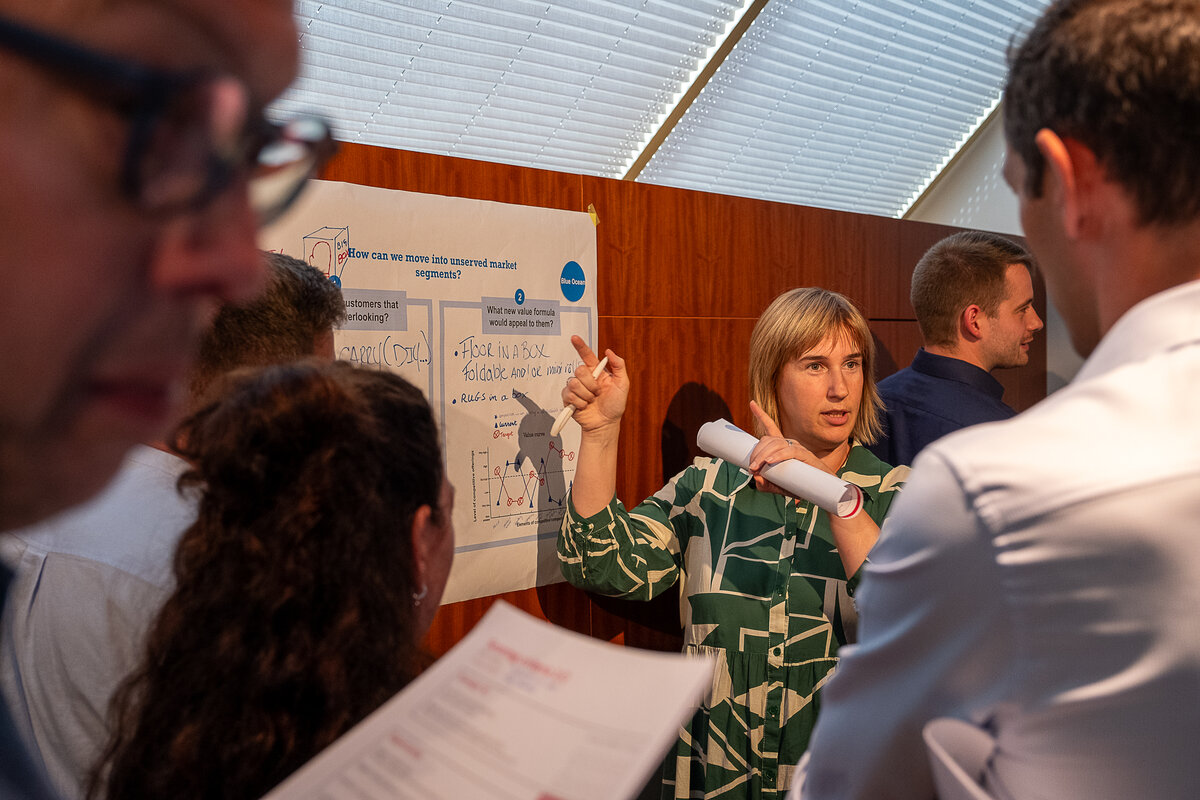Sustainable or just marketing? Why false sustainability claims harm consumers and the planet
In a world where consumers are increasingly prioritizing sustainability, companies are under pressure to show their environmental commitment. But not all green claims are what they seem. Greenwashing—or falsely presenting products as eco-friendly or sustainable—poses a real threat, not only to consumer trust but to the entire movement toward a sustainable future. Nele Cattoor, Product Compliance and Regulatory Affairs Manager at Beaulieu, sheds light on the tactics used in greenwashing, how consumers can spot them, and what companies and governments can do to keep sustainability honest and impactful.
Hi Nele! First of all, what is greenwashing, and why is it harmful to consumers and companies?
Nele Cattoor: “Greenwashing is a term used to describe when companies falsely present themselves as more environmentally friendly than they actually are. This often happens through vague or misleading marketing claims that suggest a product or service is sustainable. The danger of greenwashing lies not only in deceiving consumers but also in the damage it does to the broader sustainability movement. When companies engage in greenwashing, they undermine the efforts of those who genuinely contribute to sustainable practices. It creates a false impression of progress and can confuse consumers, making them less inclined to make truly sustainable choices. Greenwashing might bring companies short-term benefits, such as increased sales or a stronger image, but in the long run, it can lead to a loss of consumer trust, fines from regulatory authorities, and even legal consequences.”
For the everyday consumer, how can they spot greenwashing? What should they be looking out for?
Nele: “Greenwashing can occur in various forms, and there are several signs consumers should look out for. One of the main red flags is the use of vague terms like ‘natural’, ‘eco-friendly’, or ‘green’, which often lack concrete meaning. Companies may claim their products are ‘green’ but without certification or detailed information about their sustainability practices, these claims are meaningless. Consumers should also examine a company’s transparency. Does the company provide insight into its supply chain and the materials used? Are labels recognized and verifiable? If not, that’s a warning sign.” “Another common tactic of greenwashing is highlighting one environmentally friendly aspect of a product, such as using recycled material in packaging, while failing to implement sustainable practices in other areas of production or operations.”

One of the main red flags is the use of vague terms like ‘natural’, ‘eco-friendly’, or ‘green’, which often lack concrete meaning
It seems like governments and regulatory bodies have an important role to play in tackling this issue, don’t they?
Nele: “Absolutely. Governments can impose penalties on companies engaging in unfair marketing practices, acting as a warning and encouraging companies to strengthen their sustainability efforts and communicate them fairly. Public databases where consumers can verify sustainability claims, along with educational campaigns on the dangers of greenwashing, would also be helpful.
Besides this, the EU has already launched several initiatives, such as the Corporate Sustainability Reporting Directive (CSRD), requiring companies to submit detailed sustainability reports, but also the Corporate Sustainability Due Diligence Directive (CSDDD) forcing organisations to have a deeper look not only on the environmental impact of products, but also on the social and economic effects of business practices.”
How important are certifications in the fight against greenwashing? Do they genuinely help build consumer trust?
Nele: “Certifications are crucial for ensuring the credibility of sustainability claims. Independent certification bodies make sure companies meet strict requirements and that their products truly meet the sustainability criteria they claim. Certifications such as ISO 14001, ISCC+, Cradle to Cradle, GRS, and offer transparency and help consumers make informed choices.”
“For companies, these certifications also serve as external validation of their sustainability efforts. They provide clear guidelines for improvement and ensure that companies can report their impact responsibly and measurably. While certifications alone are no guarantee against greenwashing, they make it much harder for companies to make false claims.”
Companies that make green claims should ensure these claims are measurable, concrete, and backed by evidence. This means not only describing what they do but also showing how they do it, using detailed reports, independent audits, and relevant certifications
What steps can companies take to avoid greenwashing and make truly sustainable changes? Where should they start?
Nele: “It starts with taking their environmental impact seriously and developing a long-term strategy for sustainability that goes beyond marketing and reaches into their core operations. Sustainability should be embedded in the company’s strategy, from design, sourcing and production to product use and waste processing.”
“A key first step is transparency. Companies that make green claims should ensure these claims are measurable, concrete, and backed by evidence. This means not only describing what they do but also showing how they do it, using detailed reports, independent audits, and relevant certifications.”
“Moreover, companies should invest in sustainable technologies and practices, and, where possible, collaborate with other businesses and organizations to develop innovative solutions that truly contribute to sustainability in their sector. This can range from reducing CO₂ emissions in production to adopting circular business models that minimize resource use.”
Many companies want to showcase their sustainability without risking greenwashing. How can they do this effectively without losing marketing power?
Nele: “Companies can retain their marketing appeal by focusing on honesty and transparency. Instead of relying on superficial, unsupported claims, they can communicate concrete results, such as reducing CO₂ emissions, implementing circular processes, or committing to social impact.”
“By sharing authentic stories about their progress and the challenges they face, companies can build a more reliable image. This increases consumer trust and can even lead to greater loyalty, as more consumers are willing to invest in brands that genuinely uphold their sustainability commitments. In turn, this creates a lasting impact that benefits both the company and society. With Beaulieu, we’re doing our best. Perfection may not exist, but it’s certainly our aim!”